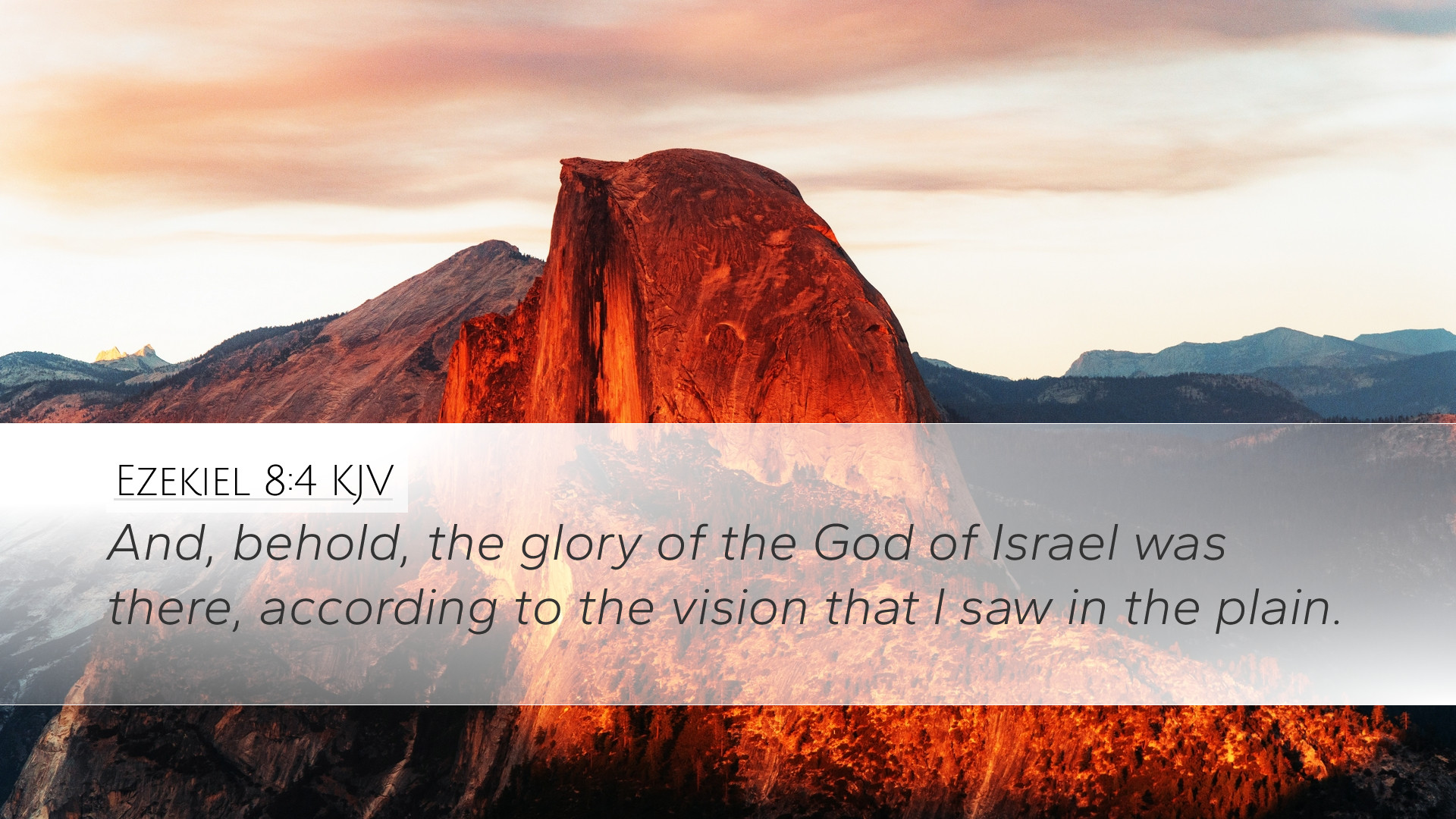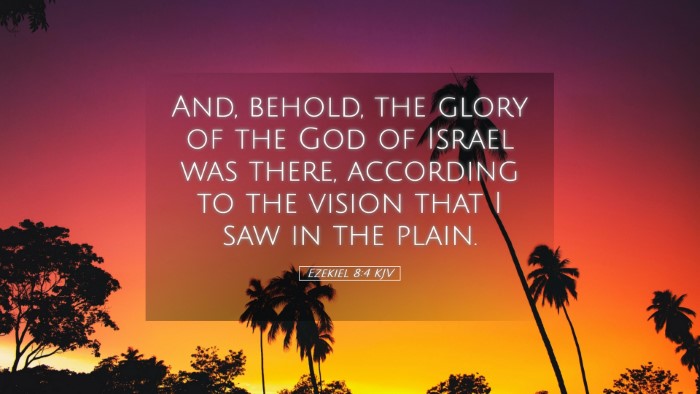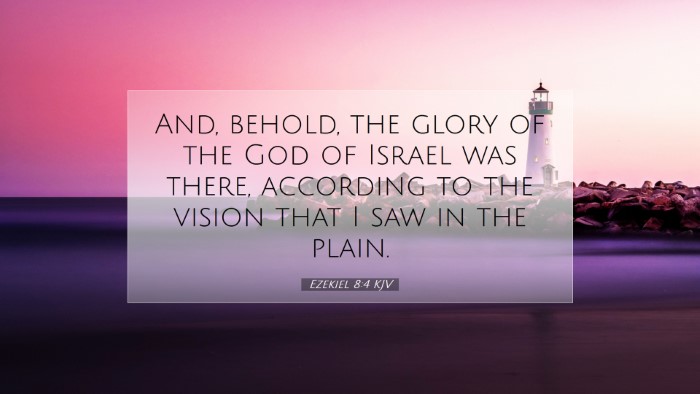Ezekiel 8:4 - A Theological and Exegetical Commentary
Bible Verse: Ezekiel 8:4: "And, behold, the glory of the God of Israel was there, according to the vision that I saw in the plain."
Contextual Background
Ezekiel, a prophet during the Babylonian exile, received numerous visions and messages from God. This particular verse occurs in a larger vision detailing the idolatry taking place in Jerusalem, seen by Ezekiel even while physically in Babylon. The reference to the "glory of the God of Israel" serves to remind the people of Israel of God's presence despite their apostasy.
Theological Significance
The manifestation of God's glory in the midst of Israel's unfaithfulness underscores a recurrent theme in prophetic literature: God's holiness and the necessity for His people to remain faithful.
Insights from Public Domain Commentaries
Matthew Henry's Commentary
Matthew Henry emphasizes that the presence of God's glory amidst Israel’s sin serves as both a warning and a promise. He suggests that even when the people stray, God does not abandon His covenant. Henry states, "The glory of God is not only around us but also in us; though we may lose sight of it through sin, it remains a powerful presence that leads to conviction and repentance."
Albert Barnes' Notes
Albert Barnes highlights the connection between the glory of God and the moral state of the people. He notes, "The vision of the glory of God appearing at such a time was a powerful attestation against them. It illustrated that God is transcendent but also immanent, revealing a divine disapproval of their actions." He elucidates that the holiness of God cannot coexist with idolatry and moral failure.
Adam Clarke's Commentary
Adam Clarke provides an in-depth look at the imagery present in this verse. He remarks that Ezekiel’s vision represents a critical juncture where God reveals Himself in judgment. Clarke states, "The glory of the Lord symbolizes His presence and the manifestation of His power. It signifies that God observes everything, even in those moments when Israel thinks they are concealed in their sin."
Key Themes and Lessons
- The Holiness of God: Central to this passage is the holiness of God which cannot overlook sin. The call is towards repentance and returning to righteous living.
- God’s Immanence and Transcendence: Despite God’s majestic glory, He remains actively involved in the lives of His people, calling them away from idolatry.
- Conviction through Divine Presence: The recognition of God's glory can bring about a deep sense of conviction and the need for spiritual awakening.
Exegetical Reflection
The verse serves as a profound reminder of God's unyielding glory juxtaposed with Israel's rebellion. This contrast invites deep reflection on the persistence of God's presence in our modern context. In times when faith may seem waning or when societal norms challenge biblical truths, believers are called to acknowledge God's might and return to foundational truths.
Conclusion
Ezekiel 8:4 is a cornerstone for understanding God's nature in relation to His people. As scholars, theologians, and spiritual leaders unpack this text, the insights provided by various commentators underline the necessity of recognizing and revering the glory of God amid a culture thriving on idolatry. This verse invites a continuous response of faithfulness and reverence towards the God who has promised never to leave nor forsake His people.


